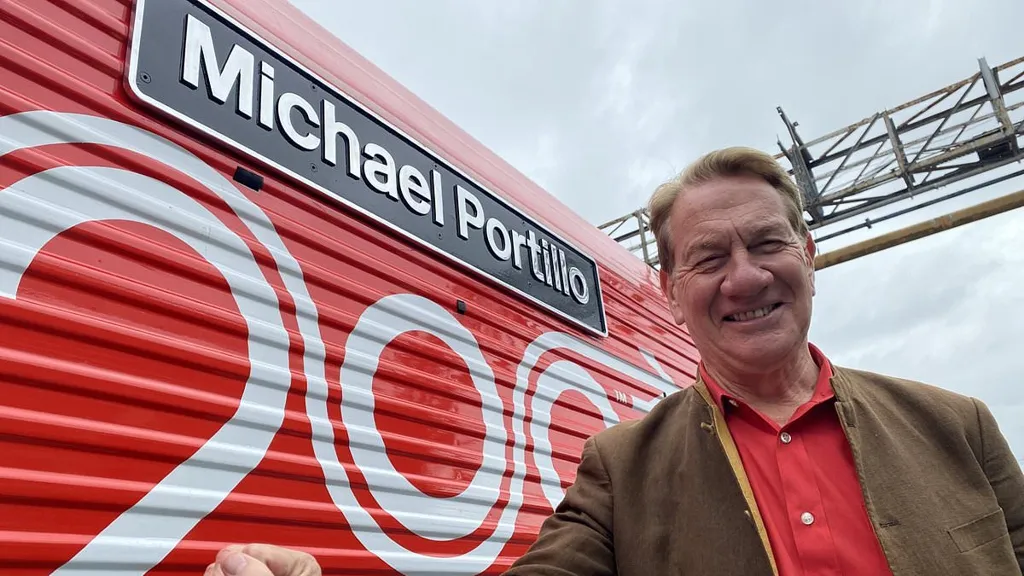Michael Portillo's 200 Years Of The Railways (BBC2)
Rating:
Michael Portillo has been celebrating two centuries of rail travel. That's not just his own trips, you understand, although it sometimes feels like it.
For the second episode of his 200 Years Of The Railways, he was in Derby at an event called The Greatest Gathering. For trainspotters, this was Glastonbury with better toilets. It boasted the largest number of locomotives ever gathered in one place, and Michael was so excited I thought his head was going to explode.
In a calmer moment, he was interviewed by BBC Radio Derby. Did they ask about the industrial significance of the Class 55 Deltic diesel, or the elegance of the Class A4 locomotive? Not quite. The big question was: 'Where do you buy those trousers?'
Like the politician he once was, Michael neatly avoided the question.
If he hadn't gone into politics, he'd have made a fine history teacher. His programmes are crammed with facts and figures, but -- like those Technicolor trousers -- they're somehow never dull.
The world's first intercity line ran between Liverpool and Manchester and opened in 1830. It was designed to take cotton from the Liverpool docks to the Manchester mills, but opponents of the plan -- which needed the approval of Parliament -- claimed trains would stop hens laying eggs.
They also predicted the extinction of the horse.
Hens and horses just had to take the risk. Carrying cotton by canal took 12 hours. By train, it took two hours to carry ten times the load.
Over the next nine years, more than 1,500 miles of track was laid across the nation. To give you some idea of the scale of that achievement, the 140-mile HS2 rail project was first proposed 16 years ago. And we don't have that excuse about the hens.
The railways weren't just cheaper and quicker. There were several fringe benefits. Fresh fish could be moved quickly from ports to the big cities.
So we can thank rail for popularising fish and chips.
It was the railway that inspired Thomas Cook to invent mass tourism. His first job was organising a rail trip from Leicester to Loughborough for a temperance meeting.
Football owes at least part of its success to rail, allowing fans to travel easily to games. An estimated 60,000 people took the train to London for the 1904 FA Cup final between Manchester City and Bolton Wanderers. And the men of Newton Heath train depot founded a team, now better known as Manchester United.
'Railways were a transformative technology that changed everything about the way people lived,' said Michael in summary.
And, perhaps most important of all, they have provided a flourishing second career for a former Defence Secretary.
